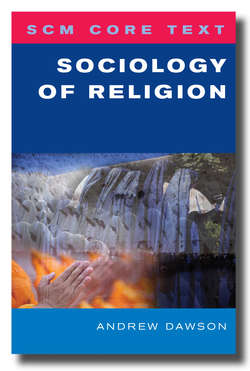Читать книгу SCM Core Text Sociology of Religion - Andrew Dawson - Страница 45
На сайте Литреса книга снята с продажи.
The Classical Legacy: Marx, Durkheim
and Weber Introduction
ОглавлениеAmong the most formative thinkers of the sociological paradigm, Karl Marx, Émile Durkheim and Max Weber are fundamental reference points for the sociology of religion. Of course, the discipline of sociology calls upon far more than the foundational insights of these three men. In doing so, however, what is drawn upon and how it is employed is – to a greater or lesser extent – orchestrated by reference to vocabulary, themes, theories and methods bequeathed to sociology by these individuals. By no means the only features of the sociological landscape, the legacies of Marx, Durkheim and Weber nevertheless remain its most prominent points of reference (Craib, 1997; Giddens, 1971). Consequently, even when in vehement dispute with their respective approaches, social scientists continue to plot a course which takes account of their enduring significance to the sociological terrain.
Each in his own way, Marx, Durkheim and Weber regard religion as both exemplary of prevailing social conditions and an excellent barometer of unfolding societal transformations. As Edles notes:
The study of religion has been at the heart of sociology since it was first founded as an academic discipline in the late nineteenth century . . . Though they used different terms and definitions, Durkheim and Weber, as well as Marxist-inspired theorists . . . all considered religion a fundamental system of meaning. (2002, pp. 25–6)
Ironically, following leads given by these foundational thinkers in respect of the demise of traditional religion within modern society, subsequent generations of sociologists – with few notable (for example, Talcott Parsons) exceptions – relegated religion to the exotic fringe of sociological thought. It is unsurprising, then, that subsequent to the renaissance of the sociology of religion in the 1970s, Marx, Durkheim and Weber have come to enjoy considerable prominence in contemporary debates pertaining to the status, role and future of religion in modern society. Indeed, I think it fair to say that the prominence given to these thinkers by the sociology of religion far exceeds that afforded by other components of the sociological paradigm.
This chapter concentrates upon providing an appreciation of the respective theoretical frameworks within which Marx, Durkheim and Weber situate their treatments of religion. To best understand these respective treatments, some awareness is needed of their foundational presuppositions and core concepts. To this end, the approach to religion of each of these formative social thinkers is prefaced by a brief overview of their most relevant theoretical concerns. While Marx, Durkheim and Weber each prognosticate upon the likely future of religion within modern urban-industrial society, for the purposes of balance and continuity I reserve these observations for use as the introductory section of our next chapter. Suffice to say here that each of these social theorists foresees the decline – if not eventual disappearance – of religion as an important source of social order and collective meaning.
